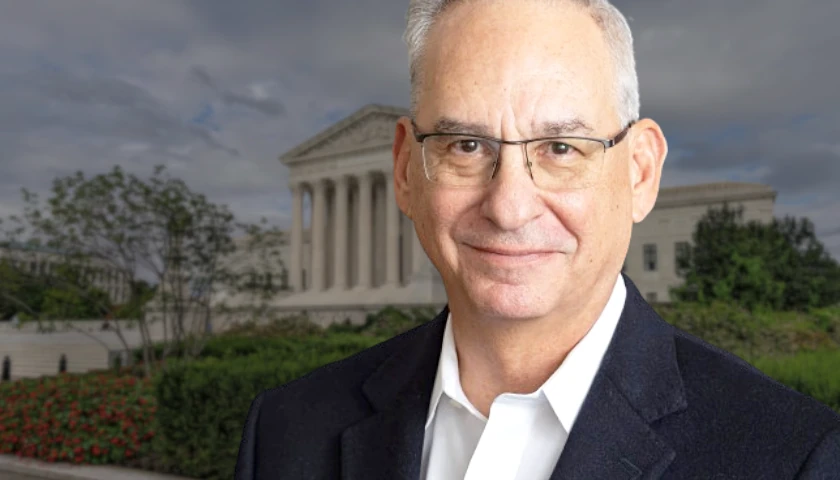Randy Barnett, the Patrick Hotung professor of Constitutional Law at the Georgetown University Law Center, said the U.S. Supreme Court’s inconsistent rulings on standing are “frustrating,” especially amid the Court’s Wednesday’s ruling in Murthy v. Missouri.
Murthy v. Missouri was brought by the Republican attorneys general of Missouri and Louisiana, along with five individual plaintiffs.
The Supreme Court ruled 6-3 to reverse a lower court injunction barring the federal government from “coercing or significantly encouraging” social media companies to suppress speech, finding that the plaintiffs did not have standing to bring the case.
Justices Neil Gorsuch, Clarence Thomas, and Justice Samuel Alito sided against the majority opinion, which was written by Justice Amy Coney Barrett and joined by Justices John Roberts, Sonia Sotomayor, Elena Kagan, Brett Kavanaugh, and Ketanji Brown Jackson.
Barnett (pictured above), who has been a law professor since 1982, said the Supreme Court’s ruling in the case was “very bad,” adding that the court applies standing principles “quite inconsistently.”
“First of all, the decision was very bad, but let’s not make it worse than it was. The court did not say that the federal government could constitutionally pressure social media platforms to suppress speech. They did not say that. if they had said that, that would have made it even worse than it was. What they did say is that these plaintiffs had not shown that they stood to be injured in the future from government pressure the way they had been injured in the past, and therefore they did not have standing to receive an injunction against future government conduct,” Barnett said on Thursday’s edition of The Michael Patrick Leahy Show.
“I think standing principles are applied quite inconsistently by the court. Usually when the court does not want to hear a case, it can invoke standing to get out from under the obligation to hear the case. So I would be in agreement with the three dissenting justices here, justices Alito Gorsuch and Thomas. I wished That a majority of justices had allowed the case to go forward so more could be proved,” Barnett added.
Barnett also said Wednesday’s ruling in the case will make it “very difficult” to challenge the government’s collusion with social media companies moving forward.
“It’s very disappointing because the record in Murthy was so overwhelming that the Biden administration had abused its powers to coerce private platforms to suppress speech. So it’s an important decision because it’s going to make it very difficult to challenge that sort of behavior in the future,” Barnett said.
Barnett said the court’s inconsistency when it comes to standing is “frustrating” to the average American and law professors like himself.
“It’s frustrating to the law professor as well. They don’t do it every time. They do it when they want to do it and they don’t do it when they don’t want to do it. That’s a bad doctrine. One that can, like precedence, stare decisis, they follow precedence when they want to, they don’t follow precedence when they don’t want to,” Barnett explained.
“That’s a problem because it’s a device by which even conservative justices can get out of their duty to follow the higher law that’s the Constitution as opposed to either a statute or an action of the executive branch,” Barnett added.
– – –
Kaitlin Housler is a reporter at The Tennessee Star and The Star News Network. Follow Kaitlin on X / Twitter.
Photo “Randy Barnett” by Georgetown University Law School.





